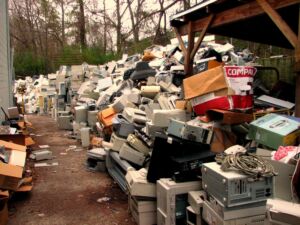News
Danes major contributors to mountains of electronic rubbish
This article is more than 10 years old.
As e-waste continues to grow worldwide, very little is recycled properly

The amount of electronic waste continues to grow worldwide (photo: Curtis Palmer)
Danes discarded 24 kg per inhabitant of electronic waste last year, making it the fourth largest generator of e-rubbish worldwide.
According to a new report, 41.8 million tonnes of e-waste was tossed out last year – mostly in the form of large household appliances like refrigerators and washing machines.
The amount of electronic waste in the world has never been greater, and the report showed that only a small portion of the trash is being properly recycled.
The gold, bad and ugly of rubbish
Recyclables worth billions were throw away, including 300 tonnes of gold. The waste was also filled with harmful substances like lead, mercury, cadmium and chromium, along with chlorofluorocarbon gases.
About 60 percent of the e-waste came from large and small kitchen, bathroom and laundry appliances, while seven percent was generated from items like discarded mobile phones, personal computers and printers.
READ MORE: Refund system for electronic waste proposed
If the e-waste continues at its current rate, it could top 50 million tonnes a year by 2018.
Norway, a country with a similar green image to Denmark’s, topped the list of e-trashers with 28.4 kg per person.










































